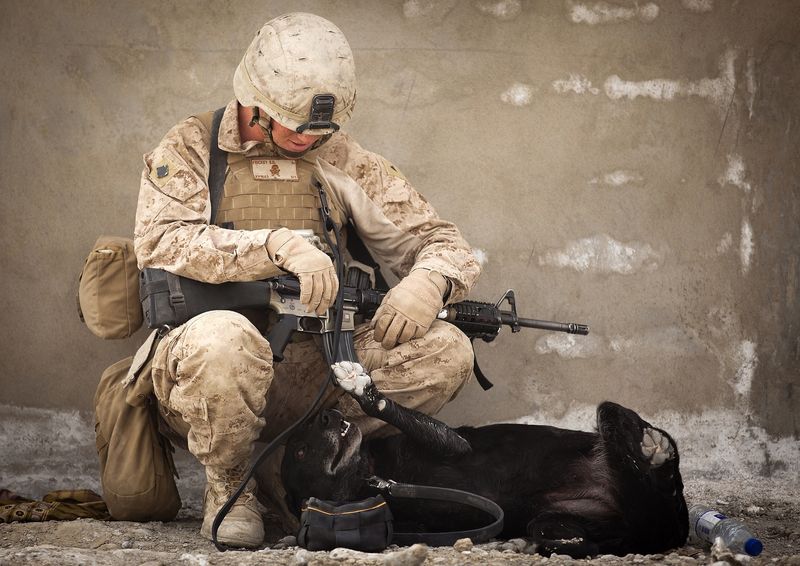Table of Contents
Burkina Faso: Unlawful Killings, ‘Disappearances’ by the Army
Introduction
Human Rights Watch has released a report detailing unlawful killings and enforced disappearances by the Burkina Faso armed forces in their counterinsurgency operations against Islamist armed groups. These abuses have taken place in the Séno province since February 2023, sparking concerns about the human rights situation in the country. The report highlights the need for accountability and calls on Burkina Faso to ensure the presence of provost marshals during military operations to protect detainees’ rights. The authorities must anchor their counterinsurgency strategy in protecting civilians and providing accountability for abuses, says Carine Kaneza Nantulya, deputy Africa director at Human Rights Watch.
The Background
The armed conflict between Burkina Faso and Islamist armed groups linked to Al-Qaeda and the Islamic State in the Greater Sahara has been ongoing since 2016, resulting in the deaths of nearly 7,900 people and the displacement of over 2 million individuals. The situation has created a fertile ground for human rights abuses, including summary executions, enforced disappearances, kidnappings, sexual violence, and attacks on education.
This report focuses on three incidents since February 2023 in the Séno province, where the Burkina Faso armed forces summarily executed at least 9 men and forcibly disappeared and apparently killed 18 others. These unlawful killings and disappearances not only constitute war crimes but also contribute to a cycle of resentment among targeted populations, fuelling recruitment to armed groups.
Implications and Concerns
These grave violations of human rights are a cause for concern, as they undermine the efforts to establish peace and stability in Burkina Faso. The abusive actions of the military breed mistrust and anger among the population, making it easier for armed groups to recruit new members. The targeted ethnic group, the Fulani, has been particularly affected by the abuse, further exacerbating existing social tensions.
The rise in recruitment efforts by armed groups among Fulani communities highlights the exploitation of local grievances, such as poverty and corruption, by these groups. It is imperative for the Burkinabè government to address these root causes and prioritize the protection of civilians as part of their counterinsurgency strategy. Failing to do so will only perpetuate the cycle of violence and insecurity.
International Response and Legal Framework
The international community, led by the United Nations and its High Commissioner for Human Rights, has expressed concern over the deteriorating situation in Burkina Faso. The UN has called on the authorities to investigate alleged human rights abuses and address the issue of impunity. The fighting between the government and armed groups qualifies as a non-international armed conflict under the laws of war, and all parties should abide by international norms and principles governing armed conflicts.
Burkina Faso is a party to the Rome Statute of the International Criminal Court, which gives the court jurisdiction over the most serious crimes of international concern. The government should take concrete steps to ensure that those responsible for war crimes and human rights abuses are held accountable, and that victims and their families receive justice and compensation. Strengthening the role of provost marshals, as outlined in the recent bill passed by the transitional parliament, is a positive step towards protecting detainees’ rights and preventing future abuses.
Recommendations
The report concludes with several recommendations for the Burkinabè authorities and the international community. First and foremost, Burkina Faso should ensure that provost marshals, responsible for discipline in the armed forces and detainees’ rights, are present during all military operations. This will help prevent abuses and promote accountability. The government should also seek assistance from the UN Office of the High Commissioner for Human Rights to ensure that security force personnel and militia responsible for serious abuses are held accountable.
Additionally, the Burkinabè government should address the root causes of the conflict, including poverty and corruption, and work towards creating a legal framework that protects civilians and respects human rights. This requires a comprehensive and inclusive approach that involves all sectors of society, including civil society organizations and international partners.
The international community should continue to support Burkina Faso in its efforts to restore peace and stability. This includes providing technical and advisory support to the government and monitoring and reporting on human rights violations. The UN Office of the High Commissioner for Human Rights, in particular, must fulfill its mandate to monitor and report on human rights abuses in Burkina Faso.
In conclusion, the situation in Burkina Faso requires urgent attention and action. The government must prioritize the protection of civilians, respect human rights, and ensure accountability for abuses. By addressing the root causes of the conflict and upholding the principles of international humanitarian law, Burkina Faso can pave the way for a more peaceful and just society.

<< photo by Pixabay >>
The image is for illustrative purposes only and does not depict the actual situation.
You might want to read !
- Rising Tide of Violence: Burkina Faso’s Ongoing Battle Against Islamist Extremism
- “Unmasking the Brutality: Analyzing the Surge of Atrocities by Islamist Armed Groups in Burkina Faso”
- Investigating the Ties between Burkina Faso’s Military and the Brutal Killing of 156 Innocent Civilians
- The Philippine Government Under Marcos: A Failing Stance on Human Rights